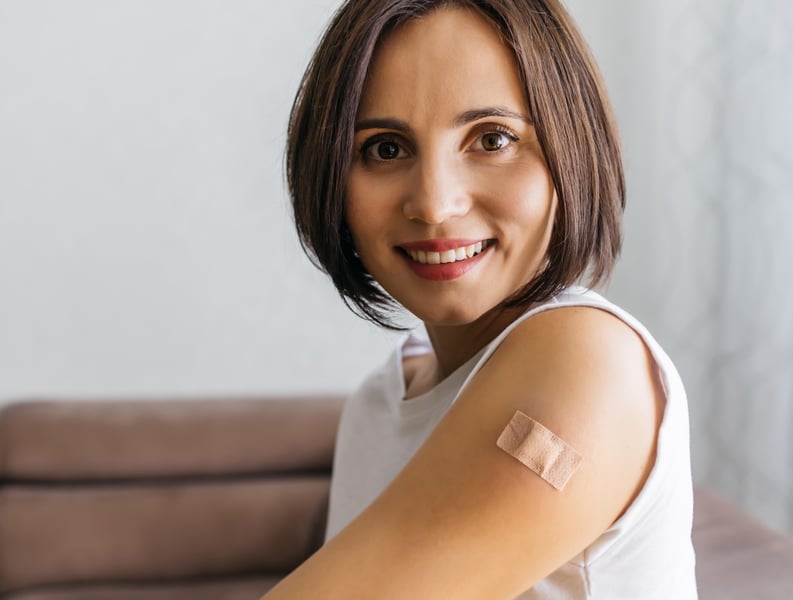Due to a recent change in our pharmacy software system, the process for submitting refill requests online has now changed.
Our previous mobile app and your current login credentials will no longer work.
Please click the Refill Online tab to begin the new process.
Thank you for your patience during this transition.
Manténgase sano!

- Cara Murez
- Posted March 14, 2023
A Good Night's Sleep Could Give Your Vaccine a Boost
It may be possible to nudge your vaccine to work a little better. The trick is a good night's sleep.
Sleep helps the immune system respond to vaccination, according to a new meta-analysis of past research, published March 13 in Current Biology.
In it, researchers found that people who slept fewer than six hours per night produced significantly fewer antibodies than people who slept seven or more. That deficit was equivalent to two months of waning antibodies.
"Good sleep not only amplifies but may also extend the duration of protection of the vaccine,"senior author Eve Van Cauter said in a journal news release. She is a professor emeritus at the University of Chicago.
Van Cauter and lead author Karine Spiegel, of the French National Institute of Health and Medicine in Lyon, France, previously published a landmark study on the effects of sleep on vaccination in 2002.
To update this, they searched, combined and reanalyzed results of seven studies of vaccination for viral infections, specifically influenza and hepatitis A and B.
They compared the antibody response for individuals who slept seven to nine hours (as recommended by the National Sleep Foundation) to that of "short sleepers"who got less than six hours of shuteye.
Overall, researchers found strong evidence that sleeping fewer than six hours per night reduced the immune response to vaccination.
But a separate analysis found the result was only significant in men. The effect of sleep duration on antibody production was much more variable in women, possibly because of fluctuating hormone levels.
"We know from immunology studies that sex hormones influence the immune system,"Spiegel said in the release. "In women, immunity is influenced by the state of the menstrual cycle, the use of contraceptives, and by menopause and post-menopausal status, but unfortunately, none of the studies that we summarized had any data about sex hormone levels."
The researchers also found that the negative effect of insufficient sleep on antibody levels was greater for 18- to 60-year-olds than for folks over 65. Older adults tend to sleep less in general, the authors said.
Some of the reviewed studies measured sleep duration directly, either via motion-detecting wristwatches or in a sleep lab. Others relied on self-reporting by participants.
Short sleep duration was associated with lower levels of antibodies in both types of studies. However, the effect was stronger for the studies that used objective measures of sleep, probably because people are notoriously bad at estimating how much sleep they've had, the authors said.
"When you see the variability in protection provided by the COVID-19 vaccines -- people who have preexisting conditions are less protected, men are less protected than women and obese people are less protected than people who don't have obesity," Van Cauter said. "Those are all factors that an individual person has no control over, but you can modify your sleep."
There is still more to understand, including sex differences, which days around the time of vaccination are most important and exactly how much sleep is needed, Spiegel said.
"We are going to be vaccinating millions and millions of people in the next few years, and this is an aspect that can help maximize protection,"she said.
More information
The U.S. Centers for Disease Control and Prevention has more on COVID-19 vaccination.
SOURCE: Current Biology, news release, March 13, 2023





